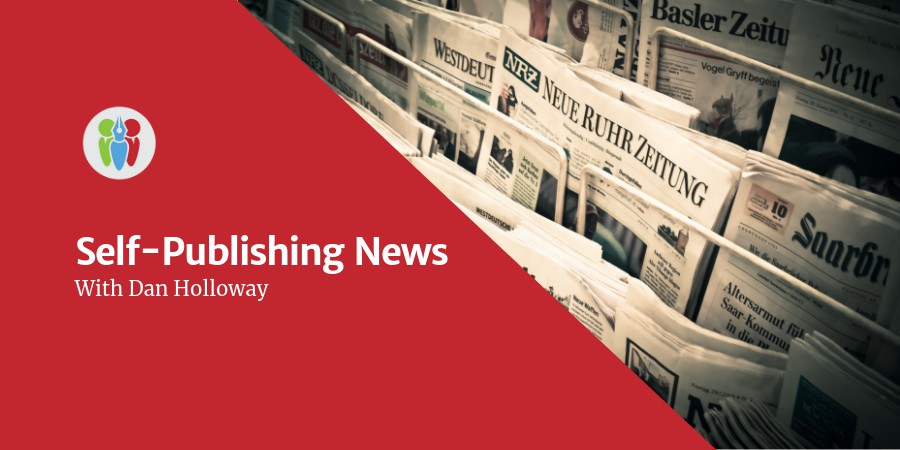
ALLi News Editor Dan Holloway
In this week's Self-Publishing News, ALLi News Editor Dan Holloway fills us in on the latest with ALLi's 75% discount for DigitalBookWorld, a scathing attack on DRM, and encouraging global opportunities for indies.
One of the questions I see asked most frequently is “should writers stick to writing?” Now, I try to avoid getting political, but it's a really important question. We not only often have a platform, but our, er, “unique set of skills” puts us in a position to use that platform. This week we saw that debate intensify as one of our most platformed writers, Jonathan Franzen, appeared to put his skills to baffling use by wading into the climate conversation. Maybe the last word on the subject should go to another writer: “tread softly” as Yeats may have advised.
What has DRM done for us?
Digital Rights Management (DRM) is one of the most controversial technologies in the publishing world. This week one of DRM’s most outspoken critics, Cory Doctorow, has issued a brutal attack. Doctorow, a member of the Electronic Frontier Foundation as well as a writer, outlines the ways DRM has changed the reading world. The first of these is that DRM contributes to a world in which we do not own the books or music we purchase. The immediate context for his piece is Microsoft’s closing of its ebook store. By turning off its DRM, Microsoft immediately made every book from that store unreadable. Nor has there been a reduction in price to reflect the reduction in ownership rights for DRM-enabled books. I often report on the growth of streaming services in this column. These services rely upon DRM technology. As indies, we need to think where this leaves us.
New technology is not killing the book
When I was at school I remember hearing that video killed the radio star. The recent rise of audio, from audiobooks to podcasting, has shown that to be demonstrably untrue. It is just as untrue that technologies like video and gaming are killing the book. Wattpad have consistently shown the contrary. Streaming video services are providing new opportunities for fiction writers to find new audiences. This week Mark Williams has a great piece on this point. He points to the announcement from Netflix Belgium that its new series comes from n original Polish novel. This is, he says, part of a Global New Renaissance.
Global Opportunities
The next item is also on the subject of global opportunities. Ghana International Book Fair has just closed. And the closing address marks a determination from the government to embrace the opportunities of digital publishing. At present the Ghanaian publishing industry is overwhelmingly focused on textbooks. That looks set to change. And with StreetLib committed to opening a digital storefront in every African market, the possibilities for us are enticing.
And talking of opportunities, the Christian Authors Network has just launched the 2019 Crown Awards. Indies Welcome!
Selfpubcon and ALLi at DigitalBookWorld
I am unashamed in repeating last week’s news about ALLi’s involvement in this week’s DigitalBookWorld. But first, even more exciting news. The speaker line-up for Selfpubcon is out. We have everything from building websites to video marketing to Dean Wesley Smith on selling rights. Join us online for 24 fabulous hours immediately after DigitalBookWorld closes. You can find the details and how to register here.
 It is only the second year of the revamped DigitalBookWorld. Nonetheless, the conference is already marking itself out as the most valuable event in the year’s calendar. Panels include audio, voice first, artificial intelligence, and big data. And many more, of course, to ensure that DigitalBookWorld is the one event a forwards-looking indie can’t miss. ALLi is delighted to be involved in this year’s DgitalBookWorld, with a 75% discount for our members which you can access here.
It is only the second year of the revamped DigitalBookWorld. Nonetheless, the conference is already marking itself out as the most valuable event in the year’s calendar. Panels include audio, voice first, artificial intelligence, and big data. And many more, of course, to ensure that DigitalBookWorld is the one event a forwards-looking indie can’t miss. ALLi is delighted to be involved in this year’s DgitalBookWorld, with a 75% discount for our members which you can access here.
ALLi members get a 75% discount for DigitalBookWorld, Cory Doctorow questions the value of DRM & other top #selfpub news stories for #indieauthors, in one quick read, by #ALLi News Editor Dan Holloway @agnieszkasshoes… Share on X
Over to You
What are your feelings about Digital Rights Management (DRM)? Let us know in the comments below.
Upcoming Conferences and Events
SEPTEMBER 2019
DigitalBookWorld, 10-12 Sep [Nashville] Self-publishing Advice Conference, 13 Sep [online]
OCTOBER 2019
Futures Thinking, 1-3 October [Oxford] Frankfurt Book Fair, 16-19 Oct [Frankfurt] Historical Novel Society Australasia, 25-27 Oct [Parramatta]
NOVEMBER 2019
Independent Self-publishing Authors Fair, 17 Nov [Henley-in-Arden]
Writerfest, 22-23 Nov [Nashville] – Early bird until 31 August!
Futurebook, 25 Nov [London]
APRIL 2020
Self-publishing Conference, 25 Apr [University of Leicester]





I’m not sure exactly how I feel about it other than to say I know a lot of older readers who would never dream that the ebooks they buy don’t “belong” to them. A lot of streaming services discount the reality that there is still a mind-blowingly large population that doesn’t completely understand technology, much less the idea that the thing they supposedly bought isn’t really theirs at all.
“I often report on the growth of streaming services in this column. These services rely upon DRM technology. As indies, we need to think where this leaves us.”
The elegance of the subscription streaming model is that consumers understand from day one that they are not buying ownership of the work they download.
That’s very different from the major retail operators who deliberately misrepresent the product as available to buy, with the implicit suggestion of buy to own.
Most consumers buying digital books from a retail store will have no idea they are buying a licence that can be revoked at any time.
I agree completely, Mark. The answer would seem to me to be a “within-system” DRM that gets added to a digital file